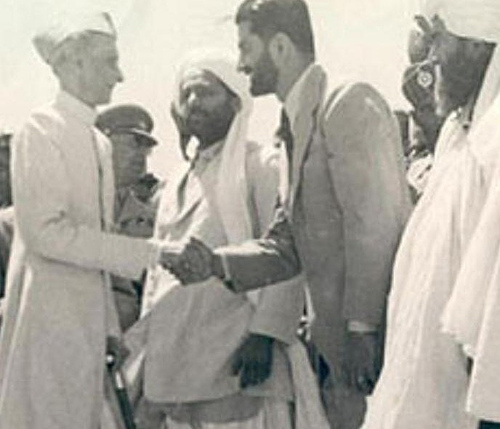Adil Najam
 Government sources in Pakistan have just announced that Nawab Akbar Bugti, chief of the Bugti tribe, veteran politician, and senior Baluchistan leader, has been killed in a shootout between “tribal militants and government forces” in Balochistan.
Government sources in Pakistan have just announced that Nawab Akbar Bugti, chief of the Bugti tribe, veteran politician, and senior Baluchistan leader, has been killed in a shootout between “tribal militants and government forces” in Balochistan.
This is very sad and disturbing news that cannot bode well for anyone. While details are still coming in, BBC reports:
The battle near his mountain hideout in south-west Pakistan also caused heavy casualties on both sides, reports say. More than 20 soldiers and at least 30 rebels died, officials say. The octogenarian has been at the head of a tribal campaign to win political autonomy and a greater share of revenue from Balochistan’s gas reserves. “It is confirmed, Nawab Bugti has been killed in an operation,” Information Minister Mohammad Ali Durrani told Reuters news agency. The battle reportedly took place near the town of Dera Bugti, not far from Mr Bugti’s hideout.
According to a newsflash posted on The News website:
Jamhori Watan Party (JWP) chief Nawab Akbar Khan Bugti was killed in a historical operation carried out by security forces in Kohlu and Murree tribal areas on Saturday night, Federal Information Minister Muhammad Ali Durrani confirmed… Pakistan People’s Party Parliamentarians (PPP-P) leader Makhdoom Amin Faheem termed Akbar Bugti’s death an incident which could worsen security situation in Pakistan.
The death, and the manner of death, of the veteran Baluch leader will indeed worsen the security situation in Baluchistan and exacerbate the feeling of marginalization amongst Baluchis. Nawab Bugti had, at various points in his life, ‘butted heads’ with just about all major leaders in Pakistan. His recent standoff with the Musharraf government was not the highpoint of his own political career but it may well be the lowest point of the Musharraf rule. However, more than the implications on immediate politics – which will become more clear and more pronounced over the next many days – this marks a tragic end to the life of an important political leader.
 Born on July 12, 1927, Nawab Bugto was a ‘ tribal’ who was educated at Oxford, England, Aitchison College, Lahore and Karachi Grammar School and has served as Governor and Chief Minister of Baluchistan. Mr. Bugti’s legacy was clearly a mixed one and will be much debated and much dissected. He was, however, a major leader and this was indeed a sad and tragic way to go.
Born on July 12, 1927, Nawab Bugto was a ‘ tribal’ who was educated at Oxford, England, Aitchison College, Lahore and Karachi Grammar School and has served as Governor and Chief Minister of Baluchistan. Mr. Bugti’s legacy was clearly a mixed one and will be much debated and much dissected. He was, however, a major leader and this was indeed a sad and tragic way to go.




















































And they wonder why the other three provinces do not trust the center?
i wish he were tried in courts and found guilty instead of the end he met.
“People who wield hammers see every problem as a nail.”
Tragic..a stubborn mercurial man..but even Bhutto did not kill the Sardars in the 1970’s. The problem is military leaders look at complex political porblems simplistically..and then wonder why things go wrong.
Thanks Adil for bringing this issue immediately on ATP.
Personally I am very sad and upset to know the tragic death of Nawab Akbar Bugti as it reminds us that we did not learn any lesson from our pathetic experiences of past. Just take the example how Pakistan was dismembered due to these security forces operations. Why we always beleive that use of POWER is the solution of conflict resolution.
The execution of ZA Bhutto and detention and tortures on political parties in Zia’s regime could not crush PPP, rather it became more strong after eleven years of Military Rule.
The Paka Qila operation in Sind against MQM could not undermine its political strength.
And now the operation in Balochistan is another glaring example of extra judical killing of so many people.
I personally believe that Bhutto and Bugti will remain alive and will be personified as the icons of resistance against the authoritarian regimes. There is a need to have a Truth and Reconciliation Commission in Pakistan to enquire the assasinations of political figures and the unconstitutional interventions of forces.
Harrison wrote a book on use of armed forces against the Baloch nationalists in 70’s here is his interview which he gave to BBC some days back: http://www.bbc.co.uk/urdu/multimedia/story/2006/08 /060818_selig_harrison_int.shtml